Blake’s 7 – The Classic Audio Adventures: Series 4.3: Crossfire – Part Three
Christopher Cooper and Steve Lyons
Produced and directed by John Ainsworth
Big Finish Productions, 2018
Stars: Paul Darrow (Avon), Michael Keating (Vila),
Jan Chappell (Cally), Steven Pacey (Tarrant),
Yasmin Bannerman (Dayna), Alistair Lock (Zen/Orac),
Jacqueline Pearce (Servalan), Hugh Fraser (The President),
John Green (Mordekain), Rebecca Crankshaw (Zeera Vos),
Dan March (Verner), Susie Riddell (Bowkan),
Bruce Alexander (Galon), Malcolm James (Dev),
Charlotte Strevens (Reeva), Peter Aubrey (Kimar),
Steven Pacey (Kervon).
"How badly do you want this civil war to end, Avon?"
"An excellent question! How much are we prepared to risk for peace?"
Zeera Vos and Avon, B7: Crossfire - Death of Empire
The first two volumes in the Blake's 7 - Crossfire saga have put Kerr Avon (Paul Darrow) and the Liberator crew in the middle of a Federation civil war. Avon has been content to run disruption against the factions of President Servalan (Jacqueline Pearce) and her predecessor (Hugh Fraser) whom she usurped during the events of the TV episode Star One.
Nor have the two presidents been interested in recruiting the Liberator to their respective sides. Indeed, in the finale to Volume 4.2, the President and his cybernetically-augmented second-in-command, Space General Mordekain (John Green), framed the Liberator crew for a terrorist attack on a Federation colony - to boost a propaganda campaign that portrayed Servalan as weak on security.
However, as the war escalates and civilian casualties mount, the Liberator crew, with the advice of seemingly omniscient supercomputer Orac (Alistair Lock), realise that if they are going to intervene in the war to hasten its conclusion, they must choose a side - and it's a decision that threatens the fragile stability of the rebel crew ...
The first of the four plays in this set is Una McCormack's Ministry of Truth. This tale continues the propaganda theme from the concluding tale of Vol 4.2 (The Scapegoat), although this time it focuses on the "infotainment" wing of Servalan's regime, whose purpose, to quote dramatist Chella Bowken (Susie Riddell), is to "keep the masses entertained, undereducated and misinformed".
Part of that "infotainment" is the drama series Space Command, chronicling the adventures of a Space Commander (Rebecca Crankshaw) hunting down a terrorist group led by the notorious renegade Kervon (Steven Pacey, hilariously channelling his inner "Gareth Thomas" as the fictional hybrid of Blake/Avon!). As McCormack herself describes Space Command in the CD extras, it's B7 within B7!
A critique by a show of itself implies that Ministry of Truth is satirical. However, while Space Command is indeed a parody, it is secondary to a plot which is quite hard-edged and traditional for a B7 tale. Ministry of Truth is more a "base under siege" instalment than high farce, reminiscent of the Vol 4.1 episode Fearless, which introduced the smuggler Zeera Vos (Crankshaw again). The difference is Vos is acting as an official envoy for Servalan, as she investigates whom aboard the infotainment station has leaked valuable wartime intel to the President's forces. Coincidentally, Avon, Cally (Jan Chappell) and Tarrant (Pacey) teleport aboard the station, in a bid to deal Servalan's Federation a blow in the war.
The series regulars and Crankshaw do a superb job of holding the audience's attention, especially as this story marks the first confrontation between Avon and Vos. Crankshaw is cool and collected as Vos in her dealings with the outlaw leader, while Darrow brings out his inner "bastard" as Avon.
It's difficult to tell if it's McCormack's portrayal of the lead or Darrow's penchant for overactIng (or both!) which make Avon seem more ruthless and paranoid in this serial than he is in the remainder of the boxset. His portrayal is more akin to his series 4 persona than the first three TV seasons, exemplified by his prescient exchange with Cally in the closing moments of the story:
"It's not easy to forgive betrayal, is it, Avon?"
"I'd say it's the unforgivable crime!"
As in Fearless, the twist of the tale isn't as astounding as it could be, with the identity of the traitor confined to two suspects: Bowken and infotainment producer Verner (Dan March). The characters are a great contrast; March's calculating, pragmatic and egocentric producer versus Riddell's naïve, idealistic and sympathetic apprentice. Their scenes are the highlight of McCormack's play, and like the character of Zheanne in the previous play The Scapegoat, they provide some insight into how much Federation citizens are frustrated insiders caught in internecine politics.
In many respects, Verner is as much a "survivor" as Avon prides himself. As he says to Bowken:
"You know my philosophy - keep your head down, do your job, don't worry too much about who's in charge! These generals and presidents and space commanders - they don't care a jot for people like us! [On] the plus side, as long as we keep below the radar, they generally don't bother us! I intend to survive this war - and the best way to do that is to go unnoticed!"
Cally has been described as the moral compass of the Liberator crew, and while there are flashes of her scruples in Ministry of Truth, it is best demonstrated in Chappell's passionate portrayal in the second serial Refuge. Having lost her home world to Servalan's machinations (in the TV episode Children of Auron), Cally is not about to abandon war victims when the Liberator encounters a people-smuggling ring orchestrated by Gev Galon (Bruce Alexander), a Federation officer-turned-smuggler and a contemporary of Vila (Michael Keating). Of course, the refugees turn out to be pawns in another scheme, again involving Vos (and by extension Servalan).
While Refuge isn't groundbreaking, Trevor Baxendale's script effectively portrays the war's impact on the so-called "little people" and creates two quandaries for the Liberator crew - whom to back in the conflict and what to do about its humanitarian problem. There are no easy solutions to either problem, and Baxendale writes some great scenes and exchanges between the regulars as the Liberator crew debate the ethics and implications of throwing their lot behind a specific side.
Dayna (Yasmin Bannerman), for example, is loath to provide any support for Servalan, the woman she has vowed to kill for murdering her father. Tarrant is also hardly enamoured with the idea of supporting the former President, his past employer. Further, Tarrant accuses Avon of having a subconscious "connection" with Servalan that precludes him from taking her out! Tarrant also has another valid point at the serial's end - that as rebels opposed to despotic regimes, it shouldn't be their job to clean up after the warring factions!
Pacey has a great turn as Tarrant in Christopher Cooper's Kith and Kin. Having determined in Refuge that it is time to take a side in the war, the Liberator crew shows little hurry to intervene! Or more accurately, Avon permits Tarrant to follow up a lead by his late brother Deeta (whom Pacey played in the TV episode Death-Watch) on Corrolos, a "retirement village" planet supposedly beyond the Federation sphere of influence.
While Corrolos is largely immune from the events of the civil war, it is clear an earlier conflict - the intergalactic war that bridged series 2 and 3 of B7 - has had an impact on that world's oblivious citizens. One of the inhabitants is Kimar Laratesh (Peter Aubrey) whose wife ended up being sucked into the depths of space while playing a golf tournament!
In the absence of Vila in this tale, Kimar is the light relief, and while Peter Aubrey plays the part well (especially in conveying Kimar's confusion at Tarrant and Cally's news that the colony's administrators haven't been telling the truth), you still get the impression that a potentially great character has been criminally underdeveloped.
For example, Kimar tells the story that his wife called him "Penny" - as in bad penny, or bad luck! It ought to be a nice touch, to help the listener relate better to him. Yet after Kimar tells the story, neither Tarrant nor Cally refer him to by his nickname (making the listener question the purpose of the anecdote!). Nor is any effort made at the conclusion to focus on how Kimar feels when the whole of Corrolos comes crashing down around him - he's presumably meant to process it all by himself after he's bundled off the Liberator onto a long-distance shuttle by an intolerant Avon. It's already taken the poor man 18 months to finally accept that he shouldn't feel so guilty for his wife's demise!

Indeed, the connection (by the Tarrant name, which was a cliché of series creator Terry Nation in his B7 and Doctor Who scripts) is tenuous and ambiguous. There's no denying the antagonist is Del Tarrant's brother - it's a more a question of whether the listener accepts the inference that it's the same character that essentially kickstarted Roj Blake's journey and B7 in the first place. Cooper and producer John Ainsworth insist in the CD extras it is - but fans are equally entitled to treat the notion with some hefty spoonfuls of salt!
It is a credit to performer Malcolm James that he provides a three-dimensional backbone to an otherwise two-dimensional character (that was originated on TV by the late Jeremy Wilkin). However, to make Tarrant's brother that character takes artistic licence a little too far and merely attempts to "plug" a continuity "hole" that didn't exist in the first place! It also detracts from the quality of what is (in dramatic terms) a decent tragedy.
Fortunately, Vol 4.3's finale Death of Empire, from a continuity perspective, is a bit more palatable. The story also applies artistic licence to a "gap" in B7 continuity (as referenced in the TV episodes Traitor and Sand) but Steve Lyons, who hinted at the Crossfire story arc as early as his excellent episode Devil's Advocate (Vol 2.5), delivers a cracking and logical conclusion to the saga as the President's forces, tipped off by an informant, close in on Servalan, who is holed up in her palace on the jungle world of Geddon ...
The story - and the outcome of the conflict - plays out as I predicted in my review of Vol 4.2 - although it's never feels like a fait accompli. This chapter is compelling, balancing drama and action with lighter moments, courtesy of humour from Vila and even Zeera in some of her scenes with Servalan (eg "I did not build my imperial palace only to cower beneath it!" Servalan proclaims, to which Zeera counters: "Do you mind if I do?"). All of the protagonists and antagonists are well served by Lyons' script, and as a result, the cast deliver outstanding performances - eg Servalan's larger than life proclamations as "Supreme Empress" (being presidential apparently isn't enough!), the President's sophisticated charm and composure, Avon's dour and sceptical attitude, and Vila's terror of "monster" snakes!
Lyons also revisits the rivalry between Tarrant and Mordekain as they attempt to outwit each other in a game of strategy aboard their respective starships, the Liberator and the Lethal Shadow. John Green clearly relishes his part as the General while Pacey infuses Tarrant with extra obstinacy and anguish in the aftermath of events in Kith and Kin.
In the wash-up (and in true B7 fashion), the Liberator crew find that as much as they want to influence events for the better, they are still very much bystanders in the war - and in internecine Federation politics. Their intervention on Geddon does little to change the outcome, the seeds of which were sewn as far back as the concluding moments of Vol 4.2. Even the identity of Servalan's informant isn't entirely surprising, as it fits within the character's modus operandi to hedge bets both ways.
And so the three-volume, 12-part Crossfire saga comes to a satisfactory conclusion, with this micro-series (much like all four seasons of the TV series that inspired it) ending on a cliffhanger. Overall, the saga has been an ambitious and entertaining run from Big Finish, with some excellent episodes and consistently high auditory experiences throughout.
There have been a few misfires - the terrible Cally one-hander True Believers, the Paul Darrow-scripted Erebus and this volume's Kith and Kin - but for the most part, the episodes have been well written, with a few very clever ideas thrown in for good measure (eg Vila's "devil may care" persona in Fearless, his impersonator in The Scapegoat, the reprogrammed soldiers in Shock Troops and the brilliant blind-siding of both presidents in Funeral on Kalion). The only other criticism one could make (which was itself also true of the TV series) is that the civil war story arc and the characterisations of the regulars are sometimes disjointed. You would expect Dayna to have been psychologically scarred by her experiences in Shock Troops and even Vila to be confused after his turn in Fearless.
As for what BF's next B7 saga holds ... well, it's no doubt all in the name - Restoration (at time of writing, BF has only announced the title, it hasn't nominated a release date or confirmed the cast). With the Federation recovering from intergalactic and civil wars, the Liberator crew will no doubt be a target now that the Federation has been reunified under one leader. As Avon says: "The new regime - the same as the old regime!"
BF may also be raising the stakes a little higher - the "restoration" may well allude to an even greater threat (hinted at in Vol 4.1 episode Resurgence). If so, it may not be long before the revamped Federation begrudgingly calls on the assistance of "the galaxy's most notorious outlaws" once again ...
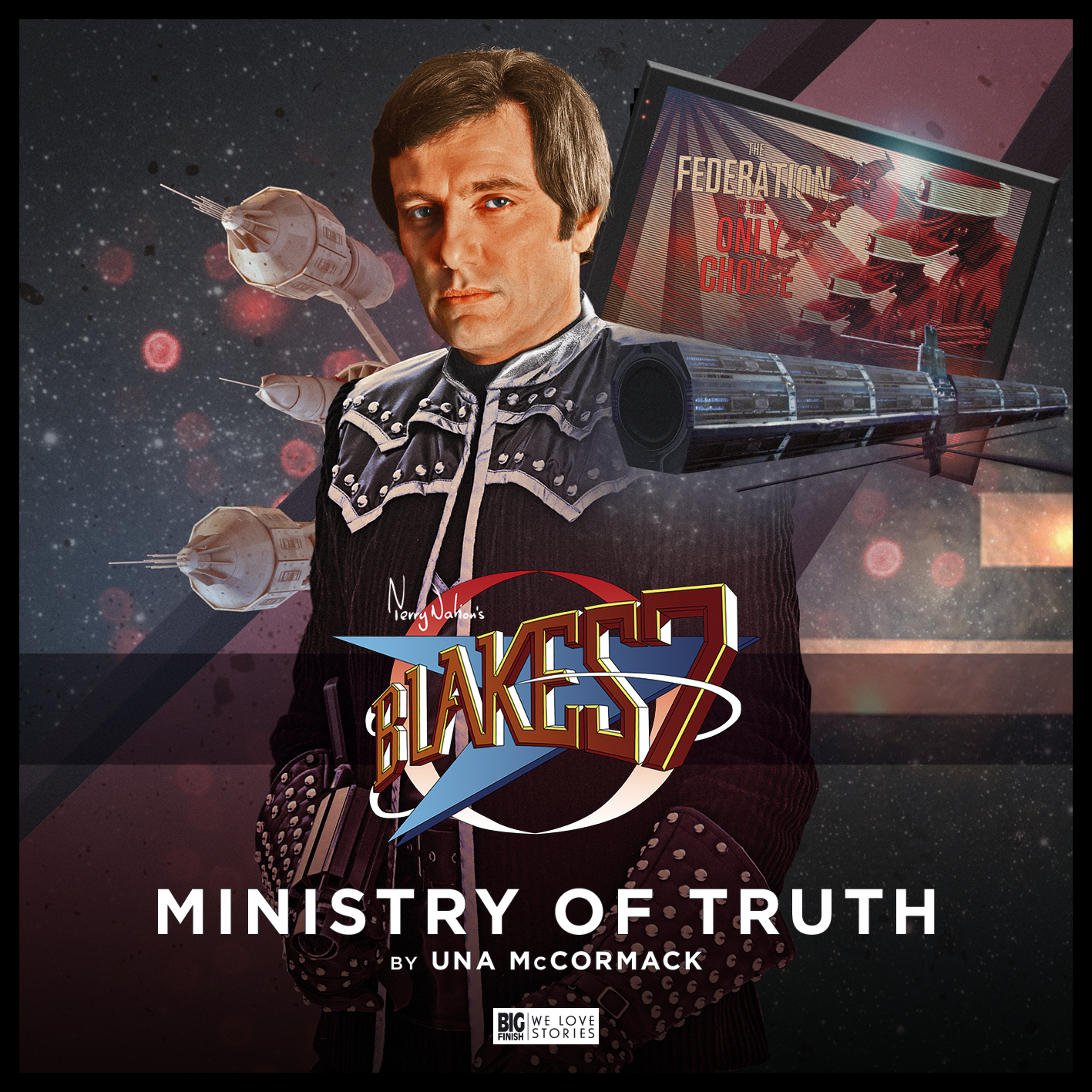

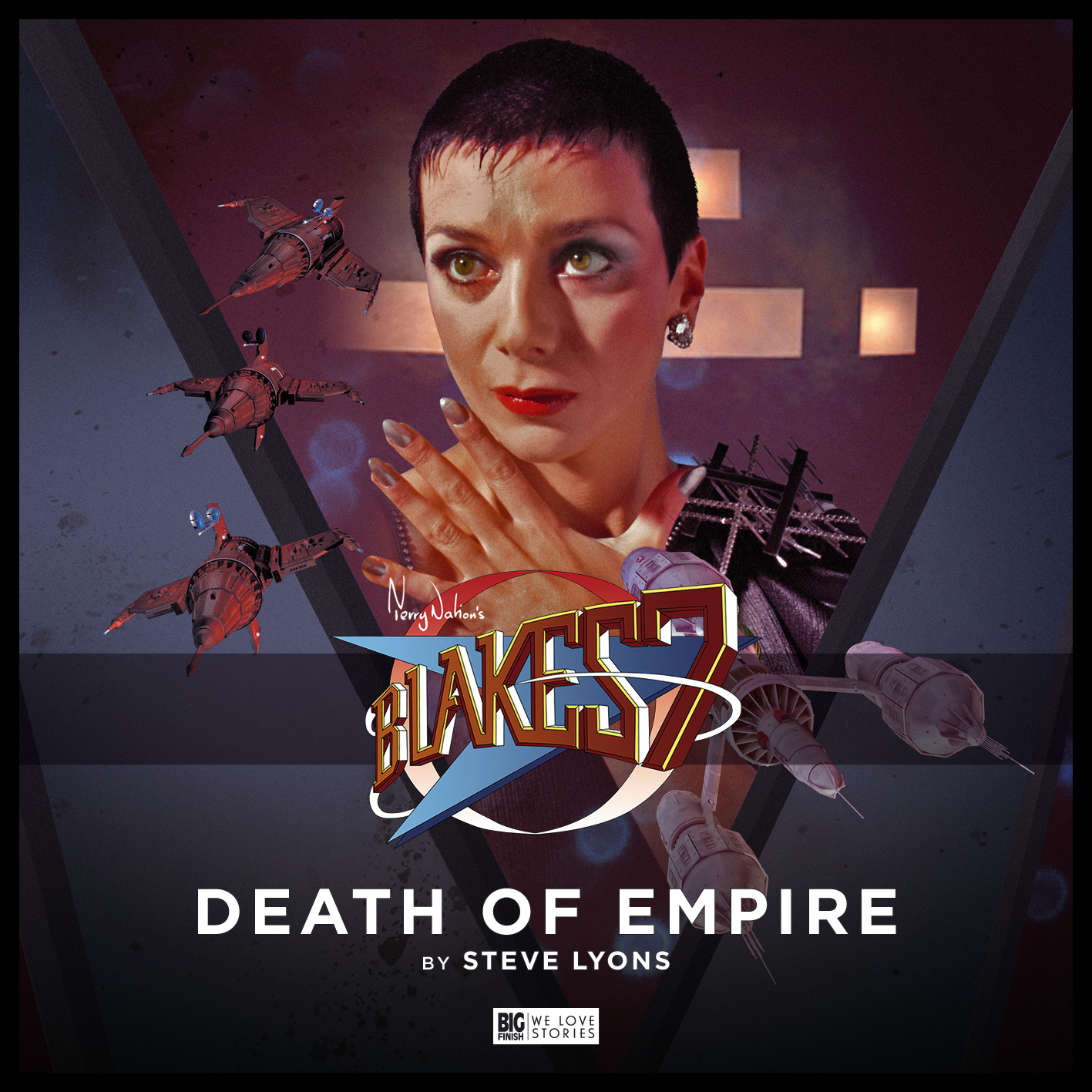

 Steve Lyons’ script is also a terrific ensemble piece, as it gives all the regular characters, including Tarrant (Steven Pacey) and Dayna (Yasmin Bannerman), plenty to do within the story, as well as some great dialogue. Dayna ends up having a great verbal stoush with the villain, while Tarrant is introduced to Mordekain (John Green), an embittered former Federation space colonel who bears many of the cybernetic hallmarks and scarred psyche of the late Space Commander Travis without being a complete carbon copy of that character (Lyons carefully foreshadows Mordekain’s introduction through an earlier aside to Travis between Avon and Vila).
Steve Lyons’ script is also a terrific ensemble piece, as it gives all the regular characters, including Tarrant (Steven Pacey) and Dayna (Yasmin Bannerman), plenty to do within the story, as well as some great dialogue. Dayna ends up having a great verbal stoush with the villain, while Tarrant is introduced to Mordekain (John Green), an embittered former Federation space colonel who bears many of the cybernetic hallmarks and scarred psyche of the late Space Commander Travis without being a complete carbon copy of that character (Lyons carefully foreshadows Mordekain’s introduction through an earlier aside to Travis between Avon and Vila).
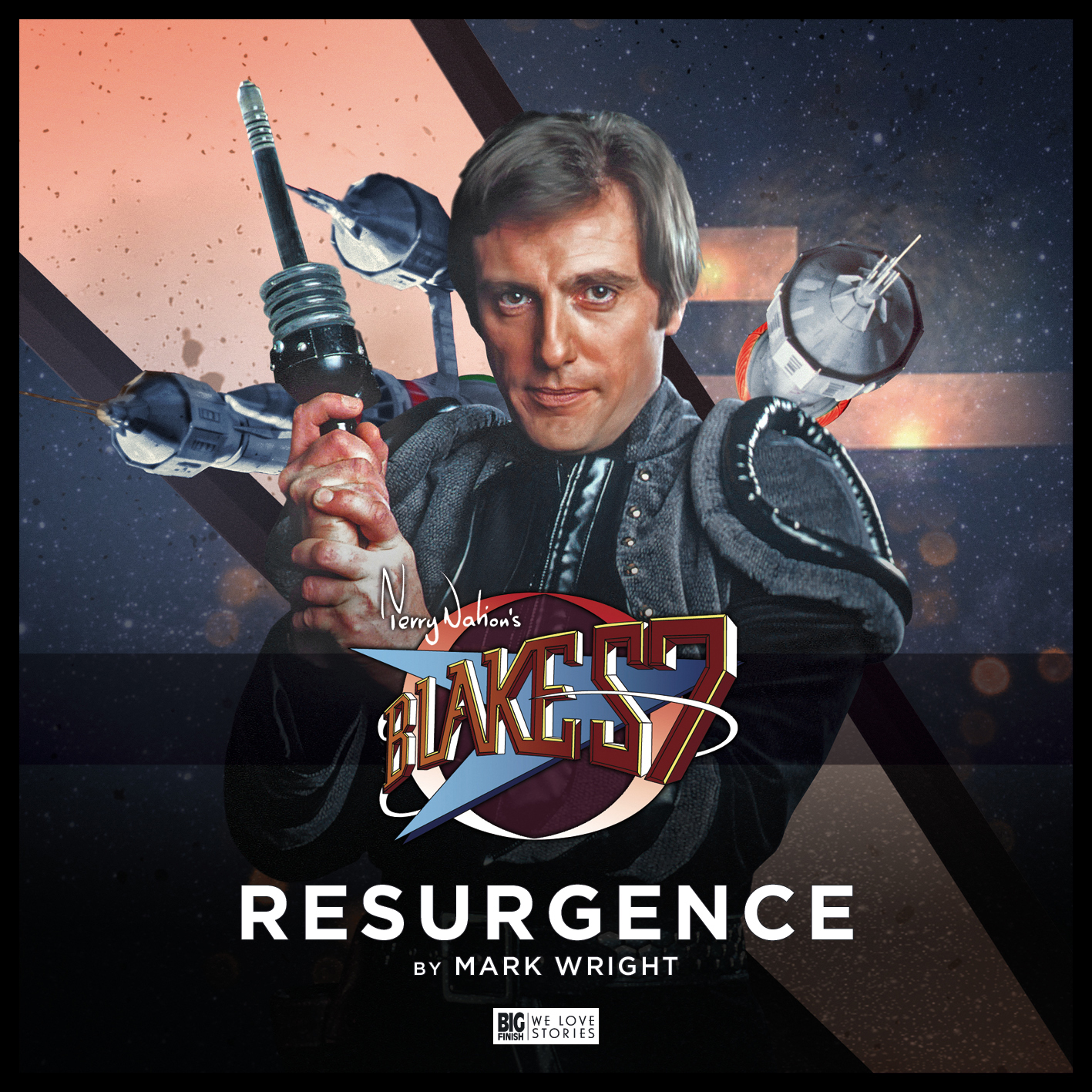 If Paradise Lost and True Believers respectively could be described as political drama and (bad) fantasy, then Resurgence is just good old-fashioned space opera. It is a sequel to B7 series two opener Redemption and features the “resurgence” of another old foe. While TV series creator Terry Nation would not have envisaged the underlying concept of Resurgence as worthy of further exploration, writer Mark Wright demonstrates in his play the wonderful potential the antagonist had to be a perennial “big bad” – in the spirit of Doctor Who’s Cybermen and Star Trek’s Borg. Wright himself argues in the CD extras that the way the adversary was dispatched in Redemption always seemed a little too easy and convenient (designed to meet the confines of a 50-minute TV episode), and that it makes sense for something of that adversary to survive, and to reassert itself.
If Paradise Lost and True Believers respectively could be described as political drama and (bad) fantasy, then Resurgence is just good old-fashioned space opera. It is a sequel to B7 series two opener Redemption and features the “resurgence” of another old foe. While TV series creator Terry Nation would not have envisaged the underlying concept of Resurgence as worthy of further exploration, writer Mark Wright demonstrates in his play the wonderful potential the antagonist had to be a perennial “big bad” – in the spirit of Doctor Who’s Cybermen and Star Trek’s Borg. Wright himself argues in the CD extras that the way the adversary was dispatched in Redemption always seemed a little too easy and convenient (designed to meet the confines of a 50-minute TV episode), and that it makes sense for something of that adversary to survive, and to reassert itself.
 Big Finish Productions, 2015
Big Finish Productions, 2015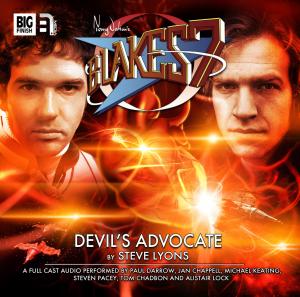 Written By: Steve Lyons and Justin Richards Directed By: Lisa Bowerman
Written By: Steve Lyons and Justin Richards Directed By: Lisa Bowerman 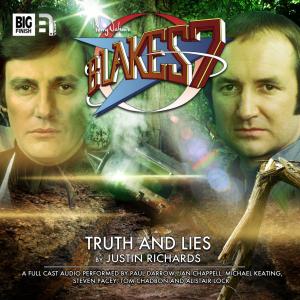
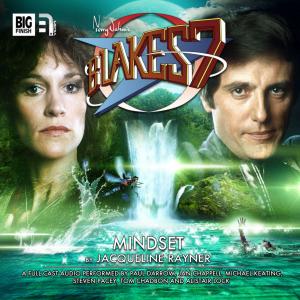 Written by Jacqueline Rayner & Iain McLaughlin Directed by Lisa Bowerman Big Finish Productions, 2015
Written by Jacqueline Rayner & Iain McLaughlin Directed by Lisa Bowerman Big Finish Productions, 2015 




